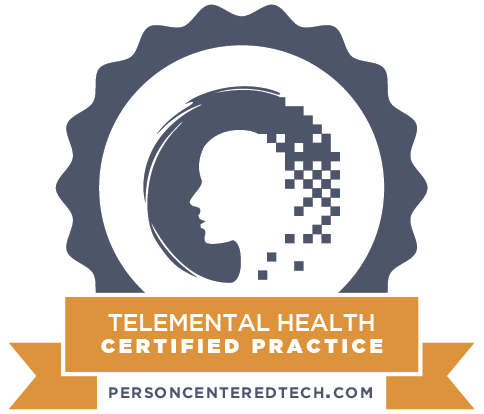Mother Guilt/Mother Shame: Stop the Madness
On a weekly basis, I meet with women in my therapy practice who feel like they are not good moms. When I explore this with them, I find that in contrast to their feelings of failure, they are doing a really good job. Their children are thriving: They do well in school, they have friends, and participate in lots of different activities. And when their children have struggles (a part of thriving), they verbalize the thoughtful way they approached the situation.
I thinks it’s important to admit that I, a psychologist and a mom who should know better (notice the unhelpful, negative thought), struggle with not feeling like a good enough mom, too. Parenting is the most humbling job no matter how well prepared you think you are.
Many things contribute to creating and sustaining moms’ feelings of not being good enough. Many of us are struggling to balance our mommy roles with other roles in our lives and are feeling stressed about not doing everything perfectly. So, in this first entry, let’s look at the concept of being a good enough mom.
The concept of the good enough mother was first coined by Donald Winnicott in 1953. In his work as a British pediatrician and psychoanalyst he observed thousands of babies and mothers and came to realize that babies and children actually benefit when their mothers fail them in manageable ways. They need their primary caretakers to fail them in tolerable ways on a consistent basis to learn to live in an imperfect world. Like trees blown around by wind, children grow stronger by managing challenging events in their lives. The good enough mother is cognizant of her child’s development stage and supports her child’s learning and growth.
60 years later and good enough mothering hasn’t made its way into mainstream thinking. That is terrible. We need to change how we define parenting and celebrate it. Good enough is not mediocre. Good enough is thoughtful. Good enough is making rational choices. Good enough is supporting each other to be the best mom we can be. Good enough frees us and our children to be imperfectly perfect. Let’s start with getting the word out. #goodenoughmom
Article by Cathy Walls
By Cindy Kuzma. Contributed by Cristine Toel, MA, LAC, Staff Therapist
This content is selected and managed by the Healthgrades editorial staff and is brought to you by an advertising sponsor.
Depression
The throbbing, pulsing pain of regular migraines can rob you of so much—including your happiness. Research increasingly suggests a link between migraines and depression. Fortunately, medications and lifestyle changes that help one condition may have benefits for both.
Pain May Provoke Sadness
One recent study suggests women with migraines have close to a 50% greater risk for depression than those without severe headache. Another found that as many as 4 in 10 people with chronic migraines develop the condition.
It’s little wonder that frequent migraines dampen your mood. After all, coping with intense, long-lasting pain makes it difficult to stay positive. Migraines can cause you to alter your routine, and they can prevent you from enjoying your normal activities. Anxiety about your migraines can make matters worse. You may even begin to cancel plans in advance, fearing the onset of the next attack.
Genes, Brain Biology Play a Role
But there’s more to the story than meets the eye. For one thing, doctors suspect the association doesn’t just work in one way. People with depression also appear to be at higher risk of developing migraines.
Scientists continue to unravel the reasons. Migraines and depression may share similar underlying biological mechanisms. For instance, genetics could leave you prone to the effects of both conditions, while shifting levels of hormones or neurotransmitters could spark their onset.
Another possibility: An additional external factor may trigger depression and migraines. One recent study suggests chronic stress could link the two. Constant pressure actually changes the way your brain functions, producing both penetrating pain and persistent sadness.
Smart Strategies Ease Aches and Depression
If you have chronic migraines, work with your doctor on developing a plan for controlling them. Keeping your pain in check may also boost your mood.
Antidepressant medications, including Elavil (amitriptyline) and Effexor (venlafaxine), alter your brain chemicals in a way that both improves your mood and reduces your risk for migraine pain. Your doctor may recommend that you take them before a migraine begins to prevent or lessen its effects.
Exercising and eating a nutritious diet can also ward off both head pain and depression. And relaxation techniques can help you cope with stress before it becomes a bigger burden. You can practice some, like deep breathing and meditation, on your own. Others, like biofeedback, are easier to do with a professional’s help. Biofeedback helps you learn to control such functions as blood pressure and pain response.
PCS utilizes the help of an experienced and knowledgeable psychiatrist on staff, Dr. Sheldon Wagman, DO, FACN, DLFAPA as well as a Medical Director, Dr. Richard Isenberg. If you have any questions or need to schedule an appointment with a psychiatrist or medical doctor for an evaluation, give us a call at 480-947-5739.

 (480) 947-5739
(480) 947-5739 info@pcsintensive.com
info@pcsintensive.com










